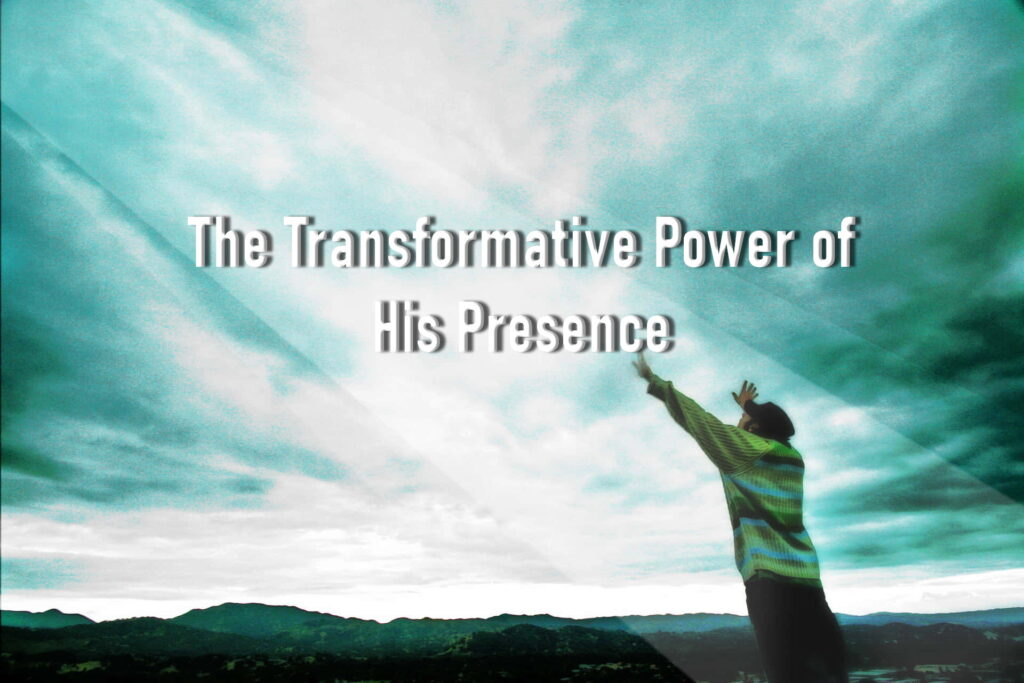
Humility and Brokenness: The Pathway to Wholeness in Christ

Humility and Brokenness: The Pathway to Wholeness in Christ
In the rich tapestry of biblical teaching, humility and brokenness emerge as profound invitations to experience the fullness of God’s grace and love. These qualities, often viewed as weaknesses in a world that prizes power and self-sufficiency, are, in fact, the cornerstones of a life transformed by Christ. They lead us to deeper relationships with God and one another, creating spaces where healing and restoration flourish.
Humility is not thinking less of ourselves, but thinking of ourselves less. It is a posture of the heart that acknowledges our dependence on God, recognizing that He is the source of our strength, gifts, and purpose. In Philippians 2:3-4, Paul urges us to “do nothing out of selfish ambition or vain conceit. Rather, in humility value others above yourselves, not looking to your interests but each of you to the interests of the others.” This call to humility invites us to foster a spirit of service and love, creating bonds of unity and compassion among us.
Throughout Scripture, Jesus embodies humility in the most profound ways. He, the King of Kings, washed the feet of His disciples, demonstrating that true greatness is found in serving others (John 13:12-15). In Matthew 5:3, Jesus declares, “Blessed are the poor in spirit, for theirs is the kingdom of heaven.” This radical teaching reveals that humility—a recognition of our spiritual poverty and need for God—opens the door to His grace and blessing. It shatters the illusions of self-reliance and invites us to surrender fully to His will.
The Gift of Brokenness
Brokenness, often born from life’s trials and losses, leads us to a deeper understanding of our dependence on God. It is in our moments of vulnerability that we discover the profound truth of Psalm 34:18, “The Lord is close to the brokenhearted and saves those who are crushed in spirit.” God does not shy away from our pain; instead, He draws near, offering comfort, healing, and hope. Our brokenness is not a disqualification; it is a divine invitation to experience God’s restorative power.
Consider the story of King David, whose life was marked by both triumph and tragedy. In Psalm 51:17, he writes, “My sacrifice, O God, is a broken spirit; a broken and contrite heart you, God, will not despise.” David’s recognition of his brokenness and his heartfelt repentance opened the door to God’s mercy and forgiveness. In acknowledging our weakness, we position ourselves to receive strength beyond our own a strength that transforms us from the inside out.
The Path to Wholeness
Together, humility and brokenness lead us to a place of profound wholeness in Christ. They cultivate a deeper relationship with Him, allowing us to experience His love and grace in ways we may never have imagined. As we acknowledge our limitations and our dependence on God, we create space for His power to be made perfect in our weakness (2 Corinthians 12:9).
Furthermore, humility and brokenness enable us to form deep connections with others. They foster empathy and compassion, reminding us that we are not alone in our struggles. In a world often marked by judgment and division, our shared experiences of brokenness unite us in our humanity and our need for grace. We become conduits of God’s love, offering the same mercy we have received to those around us.
A Life Transformed
Let us embrace humility and brokenness as gifts from God. May we be willing to release our pride and self-sufficiency, allowing Him to mold us into vessels of His love and grace. As we walk this path, we will find that our lives become reflections of Christ’s light, shining brightly in a world that desperately needs hope and healing.
As we lean into humility and brokenness, let us remember that our shortcomings or failures never define us, but by the incredible grace that covers us. We are invited to rise from our brokenness, empowered by His Spirit, to live lives of purpose and love.
May your journey through humility and brokenness lead you to a deeper understanding of God’s heart for you. In every moment of weakness, may you discover His strength, and in every broken piece, may you witness the beauty of His restoration. Together, let us embrace the transformative power of humility and brokenness, creating a community where grace flourishes and God’s love reigns supreme!
Views: 25
Read more...

The Fruit of Gentleness: A Divine Gift with Transformative Power

The Fruit of Gentleness: A Divine Gift with Transformative Power
In the tapestry of life woven through the Scriptures, the fruit of gentleness shines brightly as a divine gift bestowed upon us by the Holy Spirit. Galatians 5:22-23 declares this quality as part of the beautiful fruit of the Spirit, alongside love, joy, peace, patience, kindness, goodness, faithfulness, and self-control. Each trait harmonizes with the others, creating a vibrant reflection of God’s nature in us.
The fruit of gentleness encourages us to approach others with kindness, to listen with our hearts, and to respond with empathy. It inspires us to carry each other’s burdens, reflecting the love of Christ in every interaction. Our world is often filled with harshness and strife, but through gentleness, we can break down walls, forging connections built on understanding and respect.
Gentleness empowers us to stand firm in our beliefs while treating others with dignity and kindness. It teaches us that we can be strong advocates for justice and truth without raising our voices. Proverbs 15:1 reminds us, “A gentle answer turns away wrath, but a harsh word stirs up anger.” In practicing gentleness, we become instruments of peace, diffusing tension and creating environments where love can flourish.
In our daily lives, let us embody this fruit of gentleness as a reflection of Christ’s heart. As we cultivate gentleness, we not only transform our spirits but also become beacons of hope and light to those around us. Our gentle words can uplift the downtrodden, our gentle actions can comfort the grieving, and our gentle presence can invite healing in fractured relationships.
As we strive to live out this fruit, let us remember that gentleness is a testament to our faith. It is the outward manifestation of our inner surrender to God’s grace. In Ephesians 4:2, we are urged to “Be completely humble and gentle; be patient, bearing with one another in love.” When we cultivate gentleness, we draw closer to the heart of God and reflect His love to a world that is desperately in need of healing.
Views: 23
Read more...

You Must Have God on the Inside: The Transformative Power of His Presence

You Must Have God on the Inside: The Transformative Power of His Presence
In the journey of faith, the most profound truth we can embrace is that having God residing within us changes everything. This inner presence is not merely a concept or a passing feeling; it is the very foundation of our identity, purpose, and strength. When we have God within us, we become vessels of His love, grace, and power, capable of impacting the world around us in remarkable ways.
- Identity Reimagined
When God dwells within us, our identity is redefined. Our past mistakes, insecurities, or the opinions of others no longer bind us. In Christ, we are new creations (2 Corinthians 5:17), transformed and made whole. God sees us through the lens of His love and grace, inviting us to live boldly as His beloved children.
- Galatians 2:20* beautifully illustrates this transformation: “I have been crucified with Christ and I no longer live, but Christ lives in me. The life I now live in the body, I live by faith in the Son of God, who loved me and gave himself for me.” With God on the inside, we draw strength from His Spirit, empowering us to live authentically and purposefully.
- Inner Strength and Peace
Life presents us with challenges, uncertainties, and trials, but with God residing in our hearts, we discover an unshakeable inner strength. His presence anchors us in the storms of life, providing peace that surpasses all understanding (Philippians 4:7).
- Isaiah 41:10 reminds us, “So do not fear, for I am with you; do not be dismayed, for I am your God. I will strengthen you and help you; I will uphold you with my righteous right hand.” When we lean into God’s presence within, we are equipped to face whatever comes our way with courage and hope.
- Guidance and Wisdom
Having God on the inside means that we are never alone. The Holy Spirit, our counselor and guide, leads us into all truth and helps us navigate life’s complexities. We can rely on His wisdom to make informed decisions, discern our path, and deepen our understanding of God’s will for our lives.
- John 14:26* states, “But the Advocate, the Holy Spirit, whom the Father will send in my name, will teach you all things and will remind you of everything I have said to you.” Trusting in the Holy Spirit’s guidance allows us to walk with confidence, knowing that we are firmly rooted in God’s purpose.
- Radiating Love and Hope
When God dwells within us, His love overflows into our interactions with others. We become conduits of His grace, compassion, and kindness, sharing His love with a world that desperately needs hope. Our transformed hearts inspire others to seek the source of our joy and assurance.
- 1 John 4:19* encapsulates this truth: “We love because he first loved us.” With God’s love within us, we are compelled to serve, uplift, and encourage those around us, reflecting His character in all that we do.
- A Legacy of Faith
Having God inside us not only transforms our lives but also leaves a lasting legacy for future generations. Our faith becomes a powerful testimony that can inspire others to seek a relationship with Christ, shaping the lives of those we encounter.
- Deuteronomy 6:4-7* emphasizes the importance of instilling faith in our families: “Hear, O Israel: The Lord our God, the Lord is one. Love the Lord your God with all your heart and with all your soul and with all your strength.” As we embody God’s truth, we pass down the gifts of faith, love, and hope to those who come after us.
Having God within us is a transformative and exhilarating experience that redefines who we are and how we interact with the world. It instills in us a sense of identity, purpose, and belonging, reminding us that we are never alone. As we cultivate this inner relationship with God, let us embrace the life He has called us to with courage, faith, and love.
Views: 50
Read more...

Why a Christian Should Not Celebrate Halloween

Why a Christian Should Not Celebrate Halloween
The decision for a Christian to celebrate Halloween is a matter of personal conviction and interpretation of Scripture. Here are several reasons why some Christians choose not to participate in Halloween festivities, along with relevant biblical principles:
- Origins of Halloween: Halloween has roots in ancient pagan festivals, particularly Samhain, a Celtic celebration marking the end of the harvest and the beginning of winter. Some Christians are concerned that these pagan associations conflict with their faith and commitment to worshiping God alone.
- Biblical Reference: Deuteronomy 18:10-12 warns against engaging in practices associated with divination, sorcery, and witchcraft, which were often part of pagan celebrations.
- Focus on Darkness and Evil: Halloween often centers on themes of fear, death, the supernatural, and evil, which can be troubling for Christians who emphasize the light of Christ. Many Christian teachings stress the pursuit of what is good and the avoidance of what promotes darkness.
- Biblical Reference: Ephesians 5:11 encourages believers to “have nothing to do with the fruitless deeds of darkness, but rather expose them.” Furthermore, Philippians 4:8 encourages believers to think about things that are pure, lovely, and praiseworthy.
- Influence on Children: Some Christians are concerned about the potential negative influence of Halloween on children. They may feel that the celebration encourages fear, confusion about good and evil, and a fascination with the occult.
- Biblical Reference: Proverbs 22:6 advises, “Train up a child in the way he should go; even when he is old he will not depart from it.” Parents often seek to instill values and beliefs that align with their faith.
- Emphasis on Carnality: Halloween can sometimes promote behaviors associated with excess, including overindulgence in candy, costumes that might be revealing or inappropriate, and a focus on all-night parties that can lead to unwise choices.
- Biblical Reference: 1 Peter 2:11 urges Christians to “abstain from fleshly lusts, which war against the soul.” The emphasis on personal holiness can lead Christians to avoid activities that might lead to temptation.
- Alternative Opportunities for Celebration: Some Christians prefer to use the time around Halloween to offer alternative celebrations that affirm their faith, such as harvest festivals or light-themed events that focus on the goodness and light of Christ.
- Biblical Reference: Matthew 5:14-16 reminds us that Christians are called to be the light of the world and to let their light shine before others.
- Personal Convictions: Ultimately, the decision to celebrate or not celebrate Halloween is a matter of personal conscience, and Christians are encouraged to be guided by their convictions following their understanding of God’s Word.
- Biblical Reference: Romans 14 emphasizes the importance of acting according to one’s faith, saying in verses 5-6, “One person considers one day more sacred than another; another considers every day alike. Each of them should be fully convinced in their mind.”
In conclusion, while some Christians may choose to celebrate Halloween with a focus on fun and community, others feel led by their faith to abstain from participating due to its origins, themes, and potential influences. Each believer should thoughtfully consider their convictions, prayerfully seek God’s guidance, and communicate openly with their families and communities about their decisions. Ultimately, the goal is to live a life that honors God and reflects His light in the world.
Views: 83
Read more...

The Fruit of Love: The Heartbeat of the Gospel

The Fruit of Love: The Heartbeat of the Gospel
In the grand narrative of Scripture, the fruit of love is the most profound and powerful expression of God’s character and His desire for humanity. Love is more than an emotion; it is an active, transformative force that touches every facet of our lives and relationships. It is through love that we encounter the very essence of God, as 1 John 4:8 declares, “Whoever does not love does not know God, because God is love.”
This divine love, as illustrated throughout the Bible, invites us into a deeper understanding of our purpose and identity. It calls us to reflect the unconditional love that God has lavished upon us, empowering us to love others fiercely and authentically. In John 13:34-35, Jesus commands us to “love one another,” stating that our love for one another will be the distinguishing mark of His followers. This charge goes beyond mere words; it calls us to action, challenging us to embody a love that is selfless, sacrificial, and transformative.
The fruit of love is beautifully expressed in 1 Corinthians 13, where we uncover the rich dimensions of how love behaves. This passage teaches us that love is patient, kind, and devoid of arrogance or wrath. It is not merely a fleeting feeling; rather, it is a steadfast commitment to the well-being of others. It rejoices in the truth and bears all things, believing, hoping, and enduring through every circumstance. When we embrace this kind of love, we experience a profound connection with others and with God.
In a world often marked by division, strife, and heartache, the fruit of love serves as a balm, offering healing and hope. Love empowers us to break down barriers, to bridge gaps, and to extend grace to those who may be challenging to love. It invites us to step outside of ourselves and to see others through the eyes of compassion. As we follow the Example set by Jesus, we learn that true love involves serving, forgiving, and lifting others just as He served us.
The ultimate expression of love is found in Jesus’ sacrifice on the cross. John 3:16 reminds us, “For God so loved the world that he gave his one and only Son, that whoever believes in him shall not perish but have eternal life.” This remarkable act of love reveals the depth of God’s commitment to us —a relentless love that pursues us even in our darkest moments. It challenges us to love others with that same abandon, to give without expecting in return, and to offer grace generously.
As we cultivate the fruit of love in our lives, we create a ripple effect that touches our families, communities, and beyond. Love empowers us to forge connections that reflect the heart of God, transforming our relationships into spaces of acceptance, support, and encouragement. It compels us to act justly, love mercy, and walk humbly (Micah 6:8), reminding us that our love is a powerful testimony of our faith in action.
Let us strive to bear the fruit of love in every aspect of our lives. May we be known as people who love deeply and authentically, reflecting the light of Christ in a world that often feels dark and lonely. When love becomes our guiding principle, we become vessels of hope and transformation, shining brightly for all to see.
May the fruit of love inspire you to embrace your identity as a beloved child of God and to love others with the same reckless abandon that He loves you. Together, let us walk in love, creating a community that embodies the heart of the Gospel where hope flourishes and God’s love reigns supreme!
Views: 95
Read more...

Living by Faith, Not by Sight

Living by Faith, Not by Sight
In a world that often emphasizes what we can see and touch, the call to live by faith reminds us that true strength lies beyond the visible. Faith invites us to embrace the unknown, to trust in what we cannot see, and to believe in possibilities that transcend our immediate circumstances.
When we choose to live by faith, we open our hearts to hope, even in the face of adversity. Each challenge becomes an opportunity to strengthen our trust in the journey, to remember that the present moment is just one chapter in a much larger story.
The path of faith is not always easy; it often requires us to step outside our comfort zones and let go of the need for certainty. Yet, it is through this courageous surrender that we discover resilience. We find that even when the road is unclear, we can walk forward with confidence, assured that we are guided by a purpose greater than ourselves.
Views: 135
Read more...

Embrace the Power of Love

Embrace the Power of Love
Imagine a world where we approach each person with open hearts and understanding. Every smile exchanged, every helping hand offered, and every moment of empathy shared becomes a thread that weaves us closer together. Loving our neighbors invites us to connect deeply, see beyond differences, and embrace our shared humanity.
This love is not merely a feeling; it is an active choice we make every day. It’s found in the small, everyday acts of kindness: a warm greeting, a listening ear, or a gesture of support during difficult times. When we c Read more…
Views: 146
Read more...

Every Good Thing

Every good thing in this world comes from The Lord; because he is perfect
Views: 201
Read more...

Unlocking Your Potential The Key from God

Unlocking Your Potential The Key from God
Every person has a unique purpose and potential waiting to be unlocked. Sometimes, it feels like we’re searching endlessly for the right path, the right opportunity, or the right motivation. In these moments, we must remember: God often provides us with a key.
- The Key of Faith
God gives us the key of faith to unlock doors we never thought possible. When we trust in something greater than ourselves, we open our hearts to possibilities. This faith allows us to take bold steps forward, even when the way is unclear. When you find yourself hesitating, remember that faith can light your path.
- The Key of Purpose
Each of us is designed with a unique purpose. God has crafted a plan for you, and discovering that plan can be like finding a hidden key to a treasure chest of potential. Embrace who you are and the gifts you’ve been given. Pursue your passions; they are often the whispers of your divine purpose leading you to your unique mission in life.
- The Key to Resilience
Life can present challenges that seem insurmountable. In these times, God equips us with the key to resilience. Remember that setbacks are not the end, but stepping stones to growth. Embrace these challenges as opportunities to build strength and character. With each challenge you overcome, you turn the key to unlock new chapters of your life.
- The Key of Community
God places people in our lives for a reason. The key to community opens the door to support, love, and shared wisdom. Surround yourself with those who uplift you, challenge you, and inspire you. Together, you can face life’s struggles and celebrate its joys, revealing the beauty of connection and collaboration.
- The Key of Service
Serving others can be one of the most fulfilling ways to discover your own purpose. When you use your talents and gifts to help others, you unlock doors to compassion and empathy. Through service, we often find that the more we give, the more we receive in spirit and fulfillment.
Remember, the keys that God places in your life are often subtle yet immensely powerful. It’s up to you to seek them out and use them. Trust in the process, embrace your journey, and know that with each key, you are unlocking not just doors but the extraordinary potential within you.
Views: 231
Read more...

Why We Believe in Tithing

Why We Believe in Tithing
Tithing, the practice of giving a tenth of one’s income or resources to God, is a topic rooted in biblical teachings and is a practice supported by many Christian denominations. Here are several reasons why Christians believe in tithing, along with relevant biblical principles:
- Biblical Command and Example
Tithing has its roots in Scripture, starting with the Old Testament. The practice is explicitly mentioned in several passages, where God commands His people to bring a portion of their harvest or income as an offering.
- Old Testament Foundation**: In Leviticus 27:30, God states, “A tithe of everything from the land, whether grain from the soil or fruit from the trees, belongs to the Lord; it is holy to the Lord.” This establishes the concept that the first fruits and a portion of one’s earnings belong to God.
- Abraham’s Example: In Genesis 14:18-20, Abraham gives a tithe to Melchizedek, the king of Salem, before the law was ever given. This act shows that the practice predates the Mosaic Law and reflects a heart of gratitude and reverence towards God.
- Acknowledgment of God’s Provision
Tithing serves as a tangible acknowledgment that everything we have comes from God. By giving a portion back to Him, we express our gratitude and dependence on His provision.
- Deuteronomy 8:18** reminds us, “But remember the Lord your God, for it is he who gives you the ability to produce wealth.” Tithing is an act of worship that recognizes God as the source of all blessings.
- Support for Ministry and Community
In the Old Testament, tithes were used to support the Levitical priesthood and the work of the temple, ensuring that those who dedicated their lives to serving God were provided for.
- Numbers 18:21 states, “I give to the Levites all the tithes in Israel as their inheritance in return for the work they do while serving at the tent of meeting.” This principle remains in effect today, where tithes support local churches, ministries, and outreach programs.
- A Heart of Generosity
Tithing cultivates a spirit of generosity and combats materialism. It encourages believers to prioritize God in their finances and reminds them that their worth is not tied to their possessions.
- 2 Corinthians 9:7 emphasizes, “Each of you should give what you have decided in your heart to give, not reluctantly or under compulsion, for God loves a cheerful giver.” When Christians give with joy and intention, they reflect God’s generosity.
- Spiritual Growth and Discipline
Regularly practicing tithing can lead to spiritual growth, teaching Christians to trust God with their finances and deepening their faith in His provision.
- Malachi 3:10 encourages believers to “bring the whole tithe into the storehouse, that there may be food in my house. Test me in this,” says the Lord Almighty, “and see if I will not throw open the floodgates of heaven and pour out so much blessing that there will not be room enough to store it.” This verse invites believers to experience God’s faithfulness through their obedience.
- New Testament Principles
While the New Testament does not command tithing in the same way the Old Testament does, it reinforces the heart behind giving and encourages generosity.
- Matthew 23:23 mentions tithing but emphasizes that justice, mercy, and faithfulness are of greater importance. This indicates that the attitude behind giving is crucial.
- Acts 4:32-35** depicts the early church sharing their resources generously, illustrating the Spirit of communal support and love, which aligns with the principles of tithing.
In conclusion, Christians believe in tithing because it is deeply rooted in biblical teaching and reflects core principles of faith—acknowledging God’s provision, supporting His work, cultivating generosity, and fostering spiritual growth. Tithing is viewed not only as a financial obligation, but also as an act of worship and obedience that honors God and expresses faith in His continued provision. Each believer is encouraged to prayerfully consider their approach to tithing, allowing their hearts and resources to align with God’s purpose in their lives.
Views: 220
Read more...